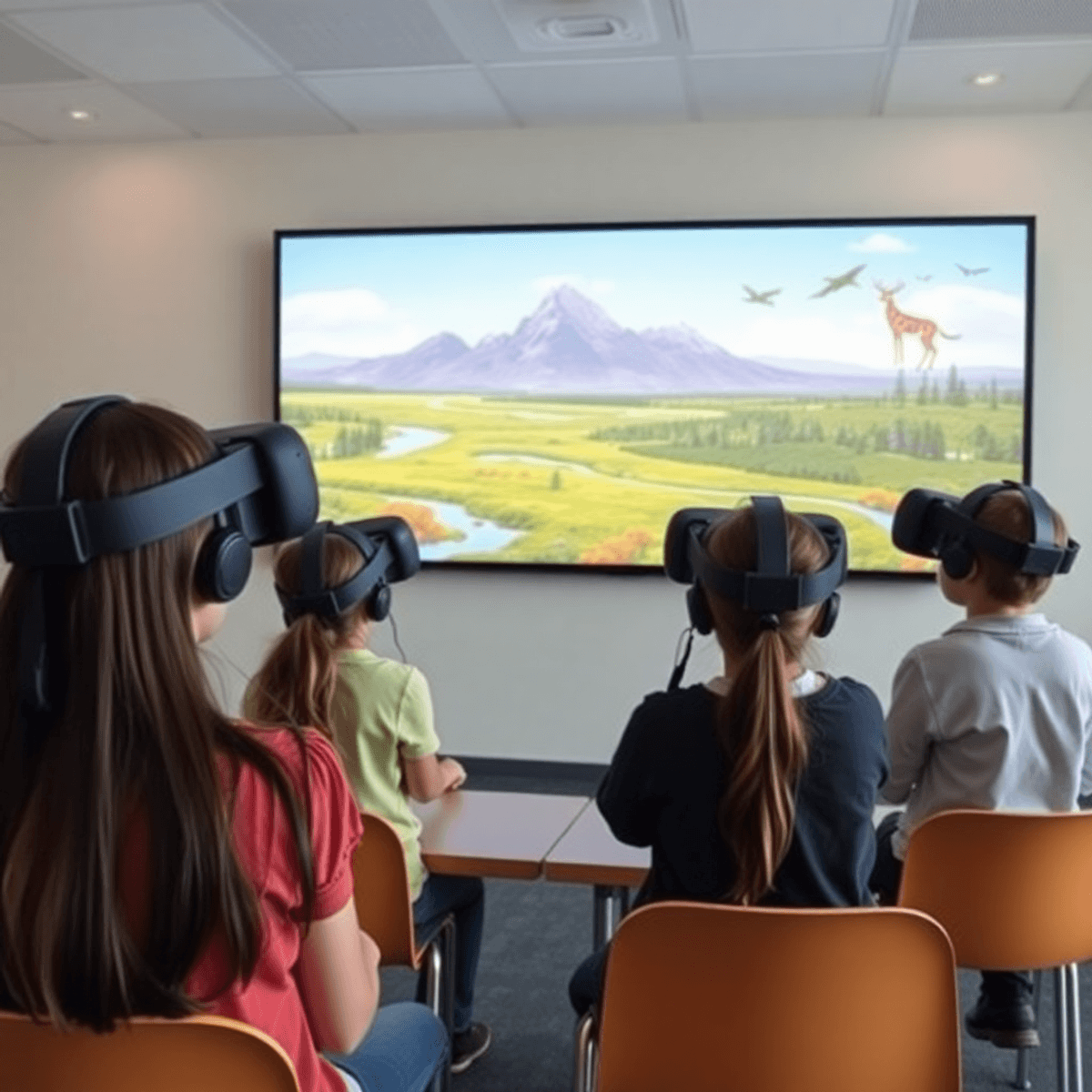
The Canadian Museum of Nature is Canada’s leading institution for natural history and natural sciences. With a vast scientific collection of over 15 million specimens, the museum provides evidence-based insights and inspiring experiences that connect Canadians to nature’s past, present, and future.
In the 2024-2025 school year, the museum’s virtual school workshops expanded their reach like never before. These free virtual workshops for schools connected with classrooms in every Canadian province and territory, bringing high-quality nature education across Canada. This achievement marks a significant milestone in making natural science accessible to students regardless of geography or school resources.
Key highlights of this unprecedented outreach include:
The Canadian Museum of Nature virtual school workshops reach every province and territory in Canada, reflecting a strong dedication to broadening access to science education and fostering curiosity about biodiversity among young learners.
The Canadian Museum of Nature’s virtual school workshops Canada program has reached impressive milestones. Nearly 9,000 students participated during the 2024-2025 school year alone. Since launching in March 2021, more than 18,000 students across the country have engaged with these science-based workshops Canada offers.
This expansive reach highlights the power of virtual learning to overcome two major barriers faced by many schools:
Engagement is further enhanced by advanced interactive technology. The use of high-definition cameras and microscopes enables students to observe real specimens up close in real time. This hands-on experience would be difficult to replicate in traditional classrooms or through static online materials.
Interactive virtual workshops create an immersive learning environment where students can ask questions, explore details visually, and develop a stronger connection with natural science topics. This dynamic approach is central to the museum’s educational programs, fostering curiosity and facilitating deeper understanding across every province and territory.
The Canadian Museum of Nature delivers curriculum-adapted workshops Canada that cover a variety of key science topics designed to engage students deeply with the natural world. Workshop themes include:
Each workshop is meticulously aligned with provincial and territorial education standards to ensure relevance and support classroom learning objectives. This tailored approach guarantees that students across Canada receive instruction consistent with their local curricula.
Age-appropriate differentiation is a cornerstone of the program. While virtual sessions cater primarily to older students, the museum also offers on-site programs in Ottawa for Kindergarten to Grade 4, providing hands-on experiences that complement early science education. These younger group workshops emphasize sensory exploration and foundational natural science concepts, tailored specifically for early learners.
This thoughtful alignment between content, age groups, and regional standards strengthens the educational value of the workshops while maintaining engagement through real-world connections.
The Canadian Museum of Nature’s virtual school workshops owe much of their accessibility to the generous support from the TD Friends of the Environment Foundation and the Jane Atkinson Smith Foundation. These partnerships have been instrumental in ensuring that the workshops remain completely free for schools across Canada, removing financial barriers that often limit access to quality science education.
Without this crucial funding, reaching nearly 9,000 students coast to coast during the 2024-2025 school year—and over 18,000 since the program’s launch—would not have been possible. The financial backing directly supports the technological infrastructure, expert educators, and development of engaging content aligned with provincial curricula.
This model highlights how strategic collaboration between philanthropic organizations and national institutions can expand educational opportunities. By investing in virtual learning initiatives like these, the foundations advance the museum’s mission: making natural science education accessible to every student regardless of location or budget constraints.
The impact reaches beyond numbers. Schools in remote or underfunded communities gain equal footing with urban counterparts, benefiting from interactive experiences that foster curiosity and environmental stewardship. This approach sets a precedent for how funding partnerships can break down traditional barriers in education while promoting inclusivity across Canada’s diverse regions.
Teachers and educators across every province and territory are encouraged to register for Canadian Museum of Nature virtual or on-site workshops for the 2025-2026 school year. These workshops provide a unique chance to engage students with natural science content tailored to their curriculum needs.
The museum’s educational outreach Canada initiative offers two main formats:
These educational opportunities inspire curiosity and foster a deeper appreciation of biodiversity among Canadian youth. By presenting real-life examples of geological formations, ecosystems, and animal adaptations, the programs build meaningful connections between students and the natural world. This approach helps cultivate future generations who value and understand Canada’s vast biological heritage.
Engaging students coast to coast through both virtual and in-person formats ensures that no matter where they live, young learners have access to quality natural science education that complements their classroom studies.
Angeline Laffin, Vice-President of Experience and Engagement at the Canadian Museum of Nature, emphasizes a strong commitment to sustaining and expanding the reach of Canadian Museum educational programs in the upcoming school year. The museum team is dedicated to offering free educational programs in natural sciences across Canada, ensuring that geographic location or school budgets do not limit access to quality science education.
Key initiatives include:
The museum’s vision embraces ongoing accessibility by providing consistent, curriculum-relevant programming that adapts to evolving educational needs. This approach ensures that every Canadian student has an opportunity to explore natural history and science through immersive experiences, regardless of their physical location.
Finding virtual school workshops offered by the Canadian Museum of Nature is straightforward. Educators can access detailed information about available virtual and on-site workshops by visiting the dedicated page at nature.ca/workshops. This hub serves as the central resource for discovering workshop topics, schedules, and specific grade-level offerings.
To register for Canadian Museum of Nature virtual or on-site workshops, follow these simple steps:
The museum ensures a seamless registration experience designed to accommodate teachers from every province and territory in Canada.
Beyond workshops, educators can explore a variety of educational resources aligned with provincial curricula in Canada available online. These resources complement workshop content by providing lesson plans, activity guides, and multimedia tools that reinforce key science concepts introduced during sessions. Resources cover diverse topics such as geology, ecosystems, biodiversity, and Arctic studies—supporting differentiated learning needs across multiple grade levels.
Accessing these materials alongside participation in virtual school workshops enriches student engagement and deepens understanding of natural history themes relevant to Canadian classrooms coast to coast.
The Canadian Museum of Nature virtual school workshops reach every province and territory in Canada, creating a powerful platform for biodiversity education Canada and natural science accessibility Canada. These workshops inspire scientific curiosity and nurture a deeper appreciation for the natural world among thousands of young Canadians across the country. The interactive nature of these sessions allows students to connect with real specimens, opening their eyes to the richness of Canada’s ecosystems.
Educators play a vital role in expanding this reach. By embracing these free educational opportunities, teachers can bring cutting-edge natural science content directly into their classrooms without geographic or financial constraints. This outreach effort strengthens the foundation of science learning and helps build a generation that values biodiversity and conservation.
You are encouraged to explore the upcoming virtual and on-site workshops offered by the Canadian Museum of Nature.
Visit nature.ca/workshops to register your class and access valuable resources aligned with provincial curricula.
Taking advantage of these programs supports the museum’s mission and contributes to fostering an informed, curious youth eager to protect Canada’s natural heritage through enriched education experiences.


